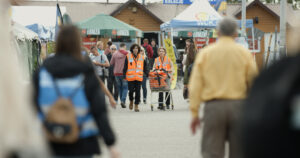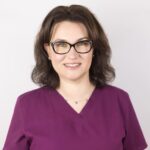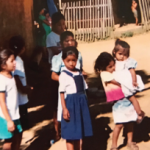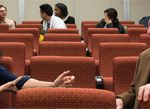“What was explained to me is that a lot of people depend on their own gardens for their food,” she says. “So if they don’t plant during the summer, they won’t have [food to eat] during the winter.”
The team of doctors attended to mostly women and children because men aged 18 to 60 years old were required to stay in Ukraine to support military efforts against Russian forces. Many of the refugees needed medications to treat hypertension, diabetes, back pain, insomnia and common ailments.
Dr. Rackoff also devoted a day in Krakow to treat people with osteoarthritis, cutaneous vasculitis and other rheumatic-related conditions. She recalls attending to one woman who had frozen shoulder.
“That’s a difficult situation because there was no physical therapy, so I sort of showed her what to do and then eventually she was going to see an orthopedist,” explains Dr. Rackoff.
“The refugees are not [that] sick, but they don’t quite yet have access to medical care,” she says. “I saw one woman who was in tears because she has breast cancer. A year ago, she knew she was in remission, but she can’t get her scans. So it’s heartbreaking.”
One of the doctors and his teenage son, who also volunteered on the mission, speak Russian and served as the group’s interpreters. This doctor had also been with Dr. Rackoff years earlier on a medical mission to Ghana.
The second visit included team members’ teenage children, who came along to volunteer, and a nurse practitioner from NYU who heard about the mission and wanted to participate. That nurse was born in the former Soviet Union and speaks Russian, so she also served as an interpreter, says Dr. Rackoff.
Not Her First Rodeo
Over 25 years, Dr. Rackoff has traveled to many destinations on medical missions, including Nicaragua, South Africa, Israel and Palestine. Her daughter, Maya Rackoff, who was 11 when she accompanied her mother to Ghana, also went on this most recent trip to volunteer.
“It’s always been a real passion of mine,” says Dr. Rackoff about volunteer missions. “My daughter is a sophomore now in college, so I feel like I have a little more free time.”

Dr. Rackoff near the Ukraine border with duffel bags of medicine donated by NYU Langone Health. (Click to enlarge.)
Dr. Rackoff plans to return to the Ukraine/Poland border again, probably in the winter. It would be her third visit since the Russian invasion, and interest among her colleagues continues to grow, she says.


